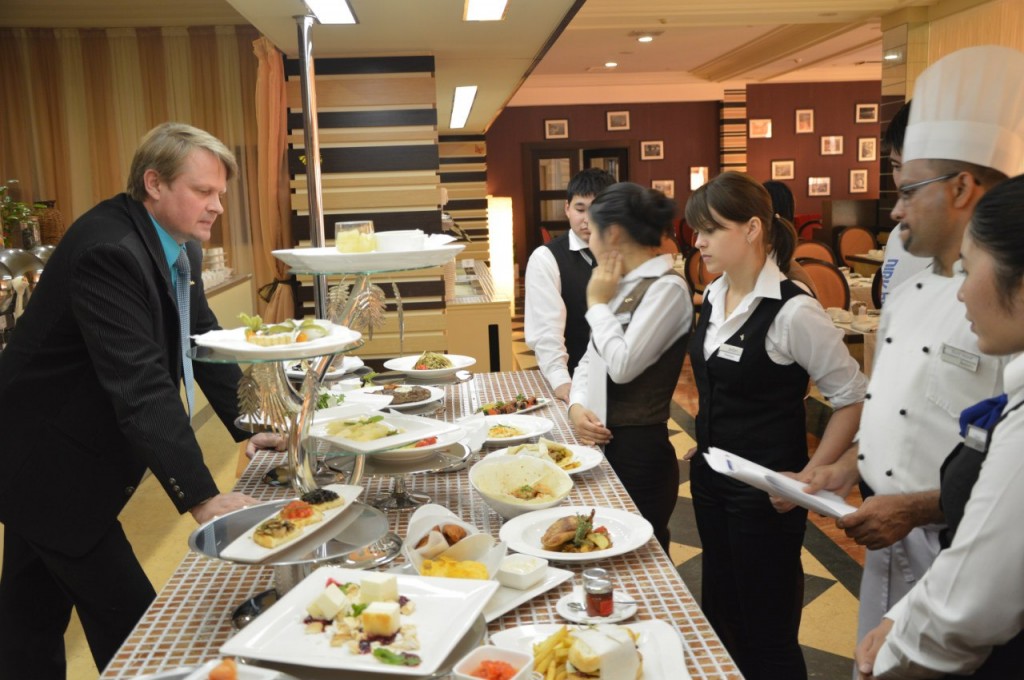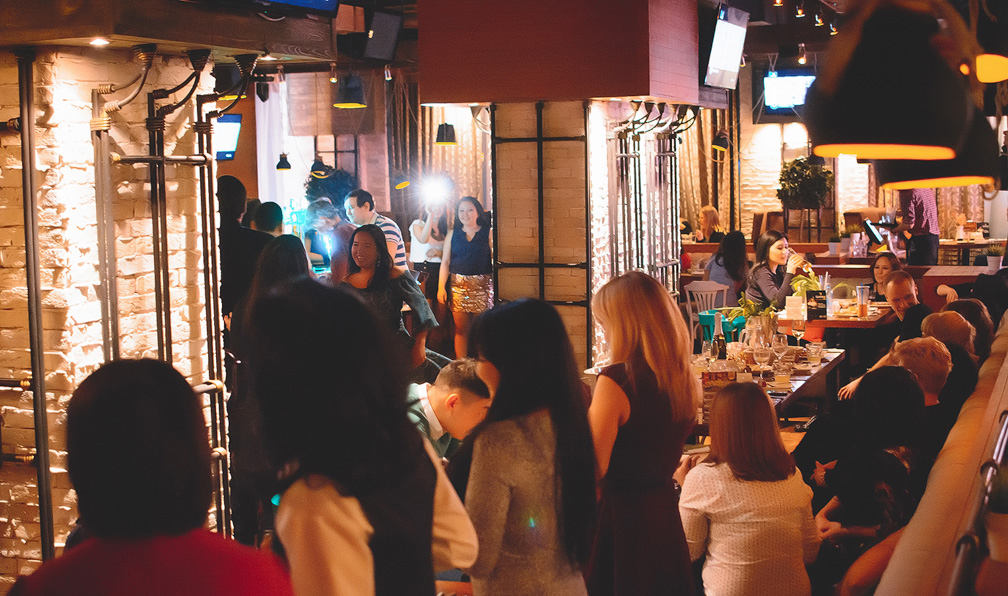ASTANA – Kazakhstan restaurateurs have joined the farm-to-table movement, using “Made in Kazakhstan” foodstuffs in their menus. Those in the dining and hotel business have developed long-term relationships with domestic producers due to the high quality, safety and freshness of their products.
Igor Kopailov, president of the HoReCa Kazakhstan national dining-hotel business association, is among the many who support the effort.
“Our association has a mission – the establishment of a partnership between domestic producers and businessmen. Kazakhstan restaurateurs, hotel owners and other businessmen are ready to cooperate with Kazakhstan producers. We would really appreciate if the bulk of Kazakhstan restaurateurs’ menus would be made of local foodstuffs, but of course we can’t and aren’t going to force somebody to do it. We will only promote this trend,” he said, as quoted by tengrinews.kz.
Fedor Filimonov, general manager of the Radisson Hotel in Astana, echoed his comments.
“This is undoubtedly a very right attitude, which positively affects not only consumers, but also representatives of the dining-hotel business. Using domestic products avoids problems with delivery, which guarantees our guests that our dishes are made of the freshest and the most high-quality foodstuffs of the day,” he said in an interview with The Astana Times on March 19.
The movement was also reinforced by Astana restaurateur Dmitriy Akhunov, head of Dorogaya Ya Perezvonyu (which stands for Darling, I’ll Call Back) restaurant.
“It is an absolutely logical statement for every state and every city. Moreover, for every field of activity. That is every businessman, be he restaurateur or a businessman of any field of activity, tries to cut down his own expenses in a number of ways. The purchase of products manufactured by domestic producers is one of those ways, especially in these hard years,” he said in an interview with The Astana Times on March. 19.
Filimonov added that supporting domestic producers is important to the national economy.
“The support of domestic producers is an important contribution to the development of our state’s economy. We are always honest with our guests and we consider that the sale of imported products under the pretense of domestic products not only limits consumers’ rights for free choice, but it is also a cheat. A guest must always get the best, because when he lives in a hotel, he gets impressions about the state of where he is living. This is an outstanding opportunity for our domestic producers to demonstrate the wealth of Kazakhstan,” he said.
Although chefs want to use Kazakh products, the “Made in Kazakhstan” promotion can be limited by a lack of particular items. “I consider that limitation or prohibition could negatively affect my business, because there is no replacement for some imported products. So such limitation or prohibition can be legal only if we have any alternatives for such imported products,” said Akhunov.
“Kazakhstan foodstuffs are high quality and our producers don’t use chemicals and genetically modified organisms, even if they aren’t always cheaper than imported ones. The usage of imported products also leads to difficulties with timely delivery and freshness,” he added.
Radisson Hotel chief cook Sunil Gopal noted he is proud of the food he can prepare in his restaurant using local products.
“First of all, it is a reasoned choice of fresh foodstuffs for the representatives of the restaurant-hotel business. Guests must always get high-quality and fresh products. Patriotism manifests itself exactly in the support of domestic producers,” he said in an interview with The Astana Times on Mar. 19.
“Touring the culture and customs of a state when you arrive for the first time always starts with its traditional cuisine. Kazakhstan always had a reputation for its meat delicacies, fruits and wheat. Many foreign guests leave the state thrilled to bits because of the variety of natural products that are produced in Kazakhstan. Many of them admit that bread and flour products are the most delicious in this country thanks to the special climate and conditions in which the wheat is grown. There is no guest who is indifferent to our meat delicacies. We really have foodstuffs to be proud of and we gladly support domestic producers,” Gopal added.
Akhunov provided insight into his menu.
“In our restaurant we use up to 90 percent of products manufactured by Kazakhstan producers. But of course this ratio depends on the menu. Our restaurant gives the opportunity to use foodstuffs made in Kazakhstan. For example, German small sausages on our menu are made in Kazakhstan and they are made of Pavlodar meat. But we almost never purchase Kazakhstan cheese, [we] use imported ones, because Kazakhstan producers don’t manufacture some sorts of cheese we need according to our recipes. For example, mozzarella cheese. I really don’t know why our producers don’t manufacture it, because it is very popular and every fourth client wants to eat a salad with this cheese. If any Kazakhstan producer starts production of this sort of cheese, we will be glad to purchase it,” he said.
Radisson Public Relations Coordinator Anastassiya Kazantseva noted that using local items is a perfect way to publicise the excellence of Kazakh products.
“We came in contact with many domestic producers of foodstuffs during the years of our hotel’s operation. Test by experience and time is the best advertisement of quality and complete conformance to all standards for us. Thanks to such cooperation, our guests get only the best,” she said in an interview with The Astana Times on Mar. 19.


